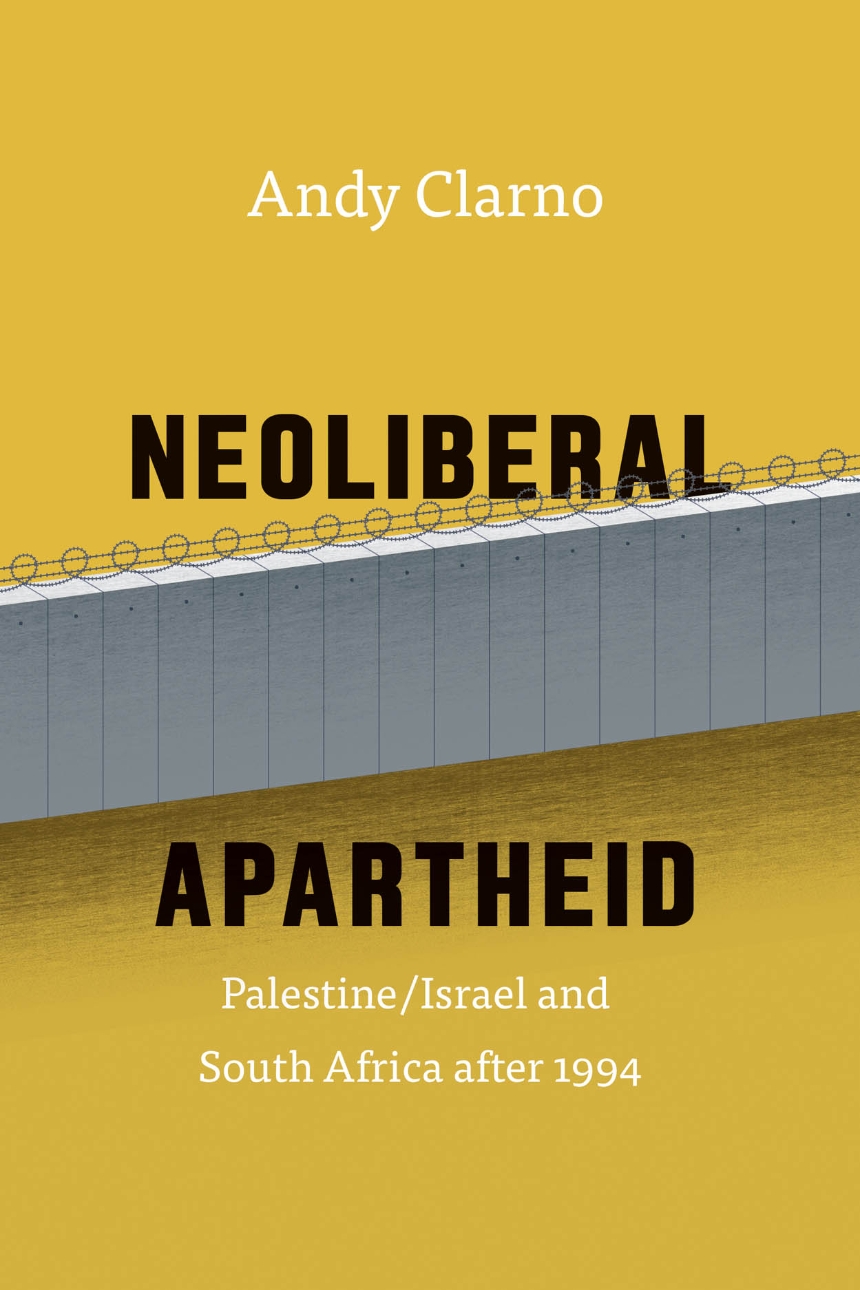Neoliberal Apartheid
Palestine/Israel and South Africa after 1994
9780226430096
9780226429922
9780226430126
Neoliberal Apartheid
Palestine/Israel and South Africa after 1994
In recent years, as peace between Israelis and Palestinians has remained cruelly elusive, scholars and activists have increasingly turned to South African history and politics to make sense of the situation. In the early 1990s, both South Africa and Israel began negotiating with their colonized populations. South Africans saw results: the state was democratized and black South Africans gained formal legal equality. Palestinians, on the other hand, won neither freedom nor equality, and today Israel remains a settler-colonial state. Despite these different outcomes, the transitions of the last twenty years have produced surprisingly similar socioeconomic changes in both regions: growing inequality, racialized poverty, and advanced strategies for securing the powerful and policing the racialized poor. Neoliberal Apartheid explores this paradox through an analysis of (de)colonization and neoliberal racial capitalism.
After a decade of research in the Johannesburg and Jerusalem regions, Andy Clarno presents here a detailed ethnographic study of the precariousness of the poor in Alexandra township, the dynamics of colonization and enclosure in Bethlehem, the growth of fortress suburbs and private security in Johannesburg, and the regime of security coordination between the Israeli military and the Palestinian Authority in the West Bank. The first comparative study of the changes in these two areas since the early 1990s, the book addresses the limitations of liberation in South Africa, highlights the impact of neoliberal restructuring in Palestine, and argues that a new form of neoliberal apartheid has emerged in both contexts.
After a decade of research in the Johannesburg and Jerusalem regions, Andy Clarno presents here a detailed ethnographic study of the precariousness of the poor in Alexandra township, the dynamics of colonization and enclosure in Bethlehem, the growth of fortress suburbs and private security in Johannesburg, and the regime of security coordination between the Israeli military and the Palestinian Authority in the West Bank. The first comparative study of the changes in these two areas since the early 1990s, the book addresses the limitations of liberation in South Africa, highlights the impact of neoliberal restructuring in Palestine, and argues that a new form of neoliberal apartheid has emerged in both contexts.
288 pages | 28 halftones | 6 x 9 | © 2017
Political Science: Comparative Politics, Race and Politics
Sociology: Race, Ethnic, and Minority Relations, Urban and Rural Sociology
Reviews
Table of Contents
List of Maps
Acknowledgments
List of Abbreviations
Introduction: Racial Capitalism and Settler Colonialism
1 South Africa and Palestine/Israel: Histories and Transitions
2 Alexandra: The Precariousness of the Poor
3 Bethlehem: Neoliberal Colonization
4 A Legalized Mafia: Security Privatization in Johannesburg
5 A Monopoly of Violence? Security Coordination in the West Bank
Conclusion: Neoliberal Apartheid
Notes
Bibliography
Index
Acknowledgments
List of Abbreviations
Introduction: Racial Capitalism and Settler Colonialism
1 South Africa and Palestine/Israel: Histories and Transitions
2 Alexandra: The Precariousness of the Poor
3 Bethlehem: Neoliberal Colonization
4 A Legalized Mafia: Security Privatization in Johannesburg
5 A Monopoly of Violence? Security Coordination in the West Bank
Conclusion: Neoliberal Apartheid
Notes
Bibliography
Index
Awards
American Sociology Association: ASA-Paul Sweezy Book Award
Won
ASA Political Economy of World Systems Section: PEWS Distinguished Book Award
Won
